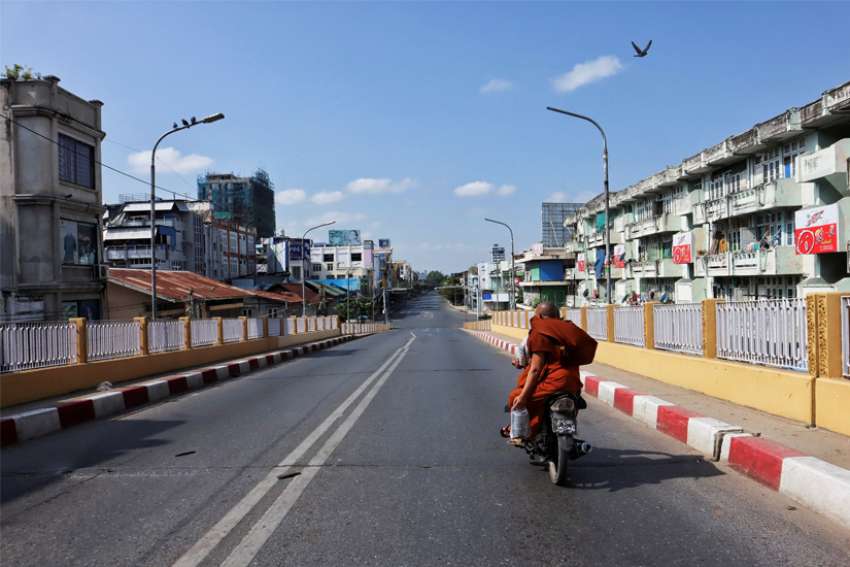Ucanews.com reported the junta had threatened legal action against protesters who banged pots and pan, clapped hands and blew car horns -- a practice traditionally associated with keeping away evil spirits.
"While millions in Myanmar mark the one-year anniversary of the illegal coup with a silent strike, the rest of us should be raising our voices for a stronger, more responsible international response to a junta that is functioning as a criminal enterprise, stealing a nation's future," Tom Andrews, U.N. special rapporteur on the human rights situation in Myanmar, said on Twitter.
Independent Catholics for Justice in Myanmar, a group of clergy and the laity, urged the faithful to participate in the silent strike that drew comparisons with a similar observance to mark Human Rights Day Dec. 10.
Local authorities forced shops, restaurants and markets to remain open and arrested several owners in Yangon, Mandalay and Pyin Oo Lwin for posting on social media that they would keep their businesses closed Feb. 1, according to local media reports.
Although the doors were open, the shops remained deserted due to the overwhelming response to the call from the National Unity Government to observe the silent strike between 10 a.m. and 4 p.m.
In Mandalay, the country's second-largest city, security was tightened Jan. 31, ucanews.com reported. Troops were deployed at every block, while private vehicles were subjected to search by police and military personnel.
Myanmar's coup leaders have extended the nation's state of emergency by another six months to facilitate the promised elections.
"It was necessary to set the right track for genuine, disciplined, multiparty democracy," Gen. Min Aung Hlaing said in a report published by the junta-controlled newspaper Global New Light of Myanmar.
The report said the military would strive to hold new elections once the situation was peaceful and stable, but did not mention any dates.
The U.S., Britain and Canada have imposed coordinated sanctions on junta members and some judicial authorities.
The coup toppled Aung San Suu Kyi's elected government, abruptly ending a 10-year experiment with democracy. It plunged the Southeast Asian country into political turmoil with nationwide protests and armed resistance to the brutal military crackdown that followed.
Nearly 1,500 people, including children, have been killed, and at least 11,000 people have been detained by the junta so far, ucanews.com reported.


